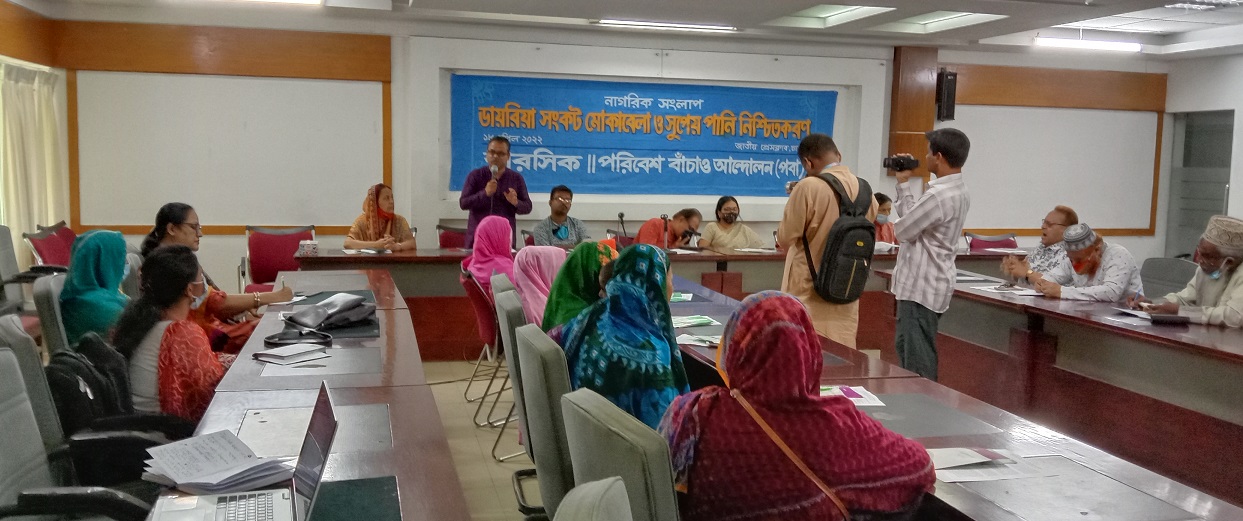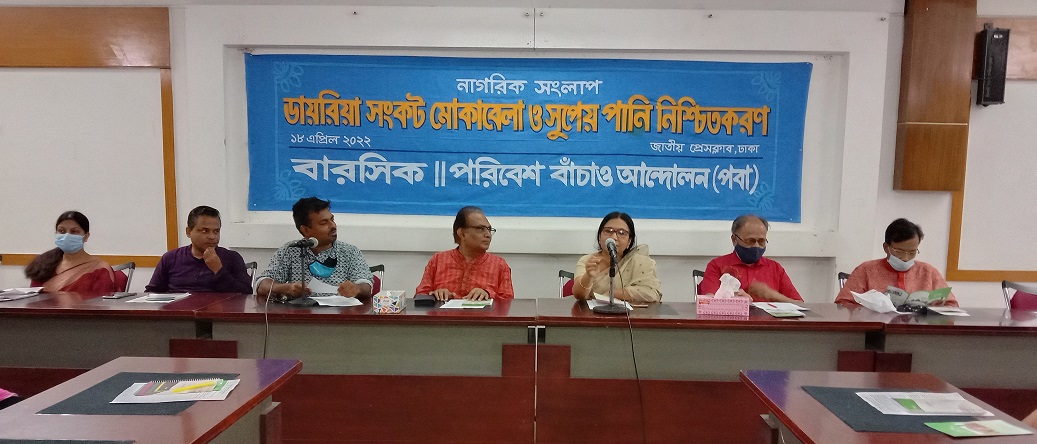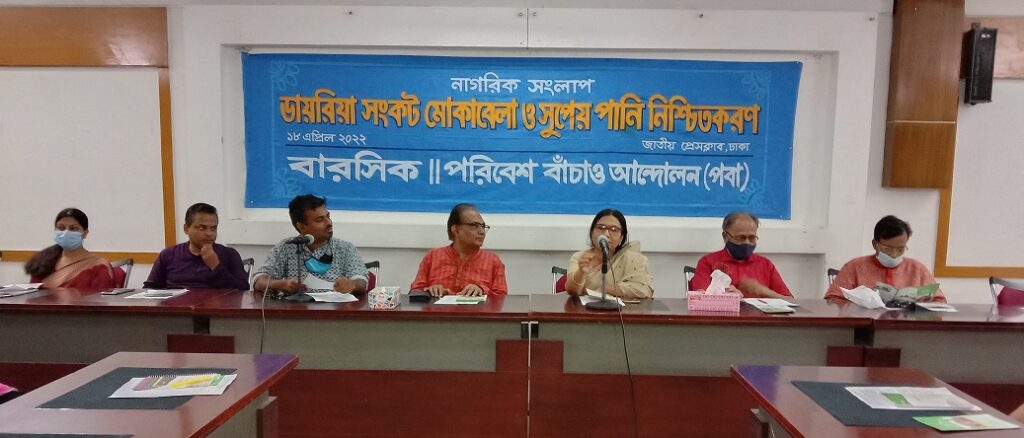A dialogue was held at Tafazzal Hossain Manik Mia Hall of the National Press Club recently to ask the state authority addressing diarrhea crisis and drinking water scarcity in Dhaka organized by BARCIK and POBA. The dialogue was chaired by Romaisa Samad, Director of BARCIK and addressed by Pavel Partha POBA where POBA Chairman Abu Naser Khan, General Secretary and Additional Director General of Environment Department Engineer Md. Abdus Sobhan, Joint General Secretary of BAPA Mihir Biswas, Awami Bastahara League General Secretary Lion Rashed Hawlader, Nagar were present as guests. Besides, BARCIK’s Researcher Md. Jahangir Alam, Ferdous Ahmed Ujjal, Slum Rights Protection Committee Chairman Hosne Ara Begum Rafeza, Freedom Fighter Siddique Ali, Old Dhaka Citizens Initiative President Nazim Uddin, Civil Rights Protection Committee Camelia Chowdhury, Slum dwellers representative Mumtaz Begum, Abdur Rahim Prom participated in the dialogue.

While addressing the dialogue prominent environmentalist engineer Md. Abdus Sobhan said, ‘The right to safe water is constitutional but the state is not fulfilling that responsibility properly. Due to which there are various problems including diarrhea.’ ‘It is important to ensure the accountability of WASA (Water Supply and Sewerage Authority) when they provide water for the citizens’-he added.
Abu Naser Khan, chairman of said, ‘The WASA should regularly test the water and publish a report to the public. We know they have water testing systems.’ He also urged all to be more aware of moderate use of water.
Rafeza, a slum leader said, ‘Water is the most important thing for slum dwellers. The slum dwellers are the most marginalized and they have to use the unsafe water and waste.
Mihir Biswas of BAPA said, ‘It is really painful to learn that people suffer from diarrhea due to drinking contaminate water. It is the state authority’s responsibility to ensure safe drinking water for its citizens.’
“We are terrified,” said researcher Pavel Partha, director of BARCIK. We know that this waterborne disease can lead to outbreaks of any other disease at any time. The policy makers will take conscious and urgent steps to deal with our diarrhea very soon.’

Speakers at the conference said that a large number of people die of diarrhea and cholera every year in the country. However, according to the Department of Health, in the first three months of this year (January-March), at least 4,71,611 people across the country have contracted diarrhea. According to the ICDDRB, 23% of patients who come to their hospital suffer from severe diarrhea or cholera.
The discussants in the dialogue place some recommendations to solve water problems and address the diarrhea situation which are seen below:
- In order to protect the people of the city from water borne diseases, the quality of water should be checked regularly and the people should be informed and arrangements should be made to supply pure water.
- The people behind the city should be given more priority in providing clean water.
- The local people should be informed about the water from the area from which diarrhea patients are coming to the hospital. WASA and local government representatives need to quickly provide clean water there.
- Patients suffering from diarrhea and cholera should be provided free treatment.
- WASA and the local government should take appropriate measures to control the quality of WASA when it enters a residential area from the water supply line in the city.
It is to mention that according to a 2016 World Bank Fertilizer Survey, not only poor people but also about 7.5 crore people in Bangladesh drink water from unclean and unsafe sources. About 41% of safe water sources contain harmful E. coli bacteria. In other cities including Dhaka, the presence of this bacterium in the water supplied to homes through pipes is highest at about 72 percent. With this 13 percent have arsenic problem.
Translated by Silvanus Lamin

